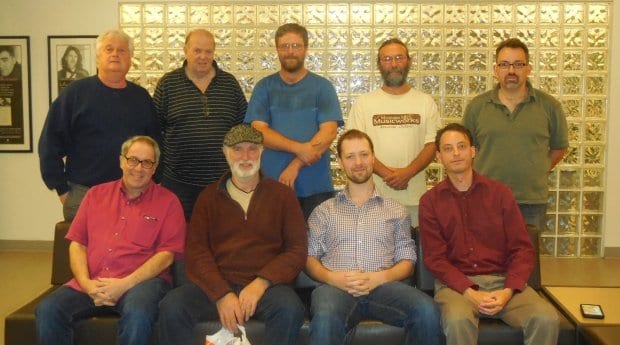Protesters briefly disrupted the inaugural event of the newly formed Ottawa chapter of a men’s rights advocacy group last week.
About a dozen demonstrators descended upon the Ottawa library’s downtown branch on June 3 for the first event for the local chapter of the Canadian Association for Equality (CAFE), delaying it for about half an hour.
The meeting later proceeded with about 45 people attending the presentation, according to organizers.
Protesters have become common at events organized by CAFE, including at a speech in the spring of 2014 by University of Ottawa professor Janice Fiamengo at the school’s campus which was canceled because of demonstrators.
Critics have accused the group of diminishing the “gendered” aspect of sexual violence by questioning the existence of rape culture and arguing that men face similar levels of spousal abuse — CAFE erected a billboard in Toronto in March which said that men constitute half of all reported domestic abuse victims.
“I’m not sure where they get that statistic from, but it’s consistently reported that one in three women experience sexual violence (and) 88 percent or higher . . . of sexual or domestic violence is experienced by women,” says Kyla Harkins, a support worker with the Sexual Assault Support Centre (SASC) of Ottawa.
“We don’t deny that men experience sexual or domestic violence, but it’s not to the same extent women do.”
She says CAFE and similar men’s rights advocates are wrong to dismiss the role that gender wields in domestic and sexual violence against women.
“We can’t deny that male privilege exists, we can’t deny the history of ongoing oppression that women experience,” she says. “Men aren’t hypersexualized and objectified the way women are.”
David Shackleton, the Ottawa chapter’s president, says that CAFE is not diminishing or trivializing the reality of discrimination and gendered experience others are facing. He says that women and members of the LGBT community, for example, have “real issues” that need to be addressed.
“I think it’s a misperception,” he says of the criticism levelled at his group. “We simply want to bring an extra piece of the conversation without in any way diminishing the validity of the other advocacy groups.”
Shackleton says that although he doesn’t know whether men necessarily face oppression, that they do suffer from discrimination and stereotypes stemming from their gender role.
CAFE wants only to address these issues facing men without dismissing the “very real experiences of discrimination against” other groups, he says.


 Why you can trust Xtra
Why you can trust Xtra


